Branding: Coordinating My Wardrobe to the HARP Colour Palette
Posted by Dorothy Lander: dorothy@tryhealingarts.ca The talented team at This is Marketing (https://www.thisismarketing.ca/) chose a unique colour palette to illuminate
In Loving Memory
J. E. (Teddy) Thomas (Dec. 20, 1933 – July 11, 2023)
Writer, Historian, Adult Educator, Friend
It is fitting that I should first learn of the death of Teddy Thomas (Dr. J. E. Thomas) in Truth and Reconciliation Week in Canada (Sept. 25 -30). Teddy was so much more than my advisor for my doctorate in adult education at the University of Nottingham – he is my cherished friend (https://www.theguardian.com/education/2023/sep/10/teddy-thomas-obituary)
Teddy and I continued our deep conversations on the healing and learning power of loving service, long after I graduated in 1997 with a PhD. Long after my narrative research into the informal education of the Service University, the unnamed universal St. Martha’s University that recognizes the transformative learning associated with the patron saint of service workers.
Throughout 2021 and 2022, as an act of service to social justice education, both Teddy and I were working on Truth and Reconciliation manuscripts for publication. Just as I was unpacking the unseen and unspoken assumptions of Canada’s colonial history of Indigenous-settler engagement in ReReading Catharine Parr Traill, Teddy was “stranging the familiar” in The Grandest Larceny: The Foundation of Israel. Without reference to adult education, we were both engaging in the practice of critical reflection and transformative learning, which demands that we rock long-held assumptions.
Teddy’s response to my decolonizing memoir, ReReading Catharine Parr Traill, which was released on National Truth and Reconciliation Day last year (Sept. 30, 2022) on the shores of Rice Lake where I grew up, is testament to the power of one act of loving service to manifest as “thinking globally, acting locally.” https://stagingnest.tech/books/rereadingcpt/ Teddy ends his response with “Thank you for reminding me how much we have in common.”
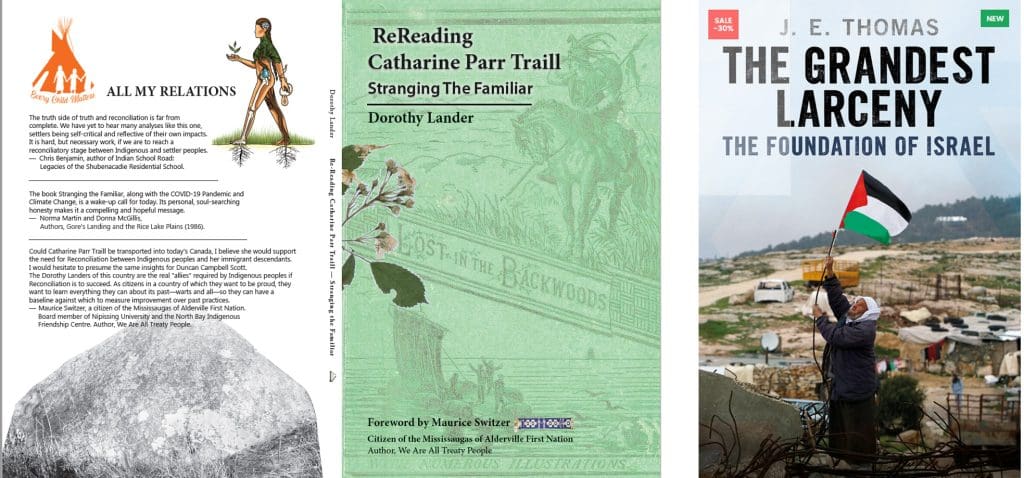
My dear Dorothy,
Your book on Traill absolutely resonates with me for a number of reasons. First, I am Welsh. This means that I sympathise with any people who are dispossessed, since historically foreigners took over our land exploiting the mineral resources and the rest of it. Nor have they finished. They are now appropriating houses, which means that local people can no longer afford to stay in the very places where they were born. Although, to be fair this applies too to depressed areas of England.
Then there is the fact that I was, for three years, a British Colonial Officer in Northern Rhodesia (now Zambia). I went into this with the somewhat precious belief that I was helping to prepare the Africans for independence. What I found was an attempt to import apartheid, and the thieving of African land in the guise of something called the Central African Federation. Also, you remind me that Christian missionaries went about the business of destroying local customs and traditions; polygamy, for example which had a rational and crucial purpose in tribal tradition. But events in Africa show that we whites are not the only ones to ‘colonise.’ The real threat to African dignity today is the wholesale invasion of the Chinese with all the concomitant theft and destruction. Nobody has a monopoly when it comes to imperialism and colonising. The behaviour of the Israelis towards the Palestinians is classic, although an important difference is that we are sort of sorry, whereas the Israelis are nothing of the sort.
Apart from apologising, I am not sure what else we can do: apart from chucking a few statues into the river, the utility of which seems to me to be dubious. I try, as I tried then, to help in small ways, notably by teaching Africans who need my help at the university.
Thank you for reminding me how much we have in common.
Love, Teddy
In The Grandest Larceny, Teddy was rocking the common assumption that Israel has a right to the land of the Palestinian Arabs.
Teddy’s social justice legacy will live on in his book, which he did not live to see published in late August 2023 or to hear the response. Teddy’s publisher, Fonthill Media, hints at this legacy in the online description, in which Teddy challenges the common assumption that Israel was founded to right an historical wrong: https://www.fonthill.media/products/larceny
A unique event in 2018: the handing over of a country by a country who did not own it to a third, which had only mythical claims to it. The Palestinian Arabs never accepted the theft of their land but have been powerless against the weight of support for the Jews given by the most powerful nations. Since 1918, despite the foundation of Israel in 1948, the region has been plagued by wars, deaths and a refugee problem of millions. The future of the Palestinians is dire and seemingly inevitable.
**********************************************************************************************************
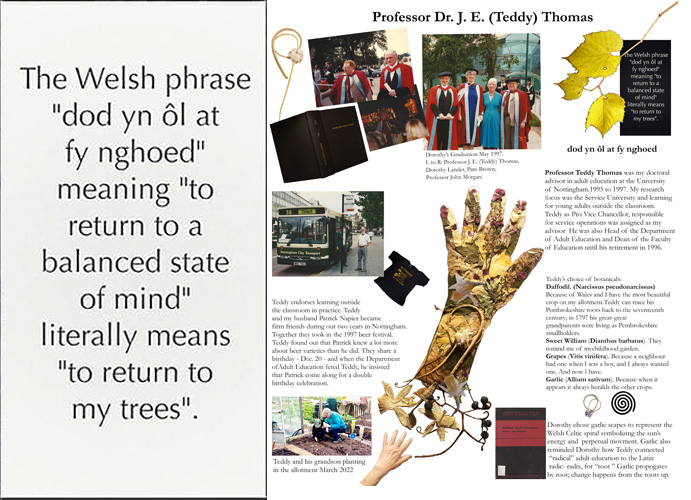

On a lighter but related note, Teddy participated in my botanical hands project; I have been making collages of pressed botanicals on the photo of the hands of inspiring and beloved people in my life; each participant chooses the flowers, leaves, fungi that have personal meaning or symbolism. Again, Teddy’s Welsh heritage and symbols for social change underpin his choices, as does his pride in his allotment. In March 2022, he wrote to say: “In October I planted winter broad beans, onions and garlic. All coming along well. As to the bottles and disks they are to frighten off pigeons which are the bane of our lives. It is a fairly common practice amongst those who believe they work. I do!” Upon revisiting Teddy’s page for my in-process The Book of Hands when I learned of his death, I was comforted by the Welsh saying of “return to my trees.” I expanded this to a “return to my allotment,” in which Teddy took such pride. I hope that it will bring comfort to all of you who are mourning the loss of Teddy in your life.
Posted by Dorothy Lander: dorothy@tryhealingarts.ca The talented team at This is Marketing (https://www.thisismarketing.ca/) chose a unique colour palette to illuminate
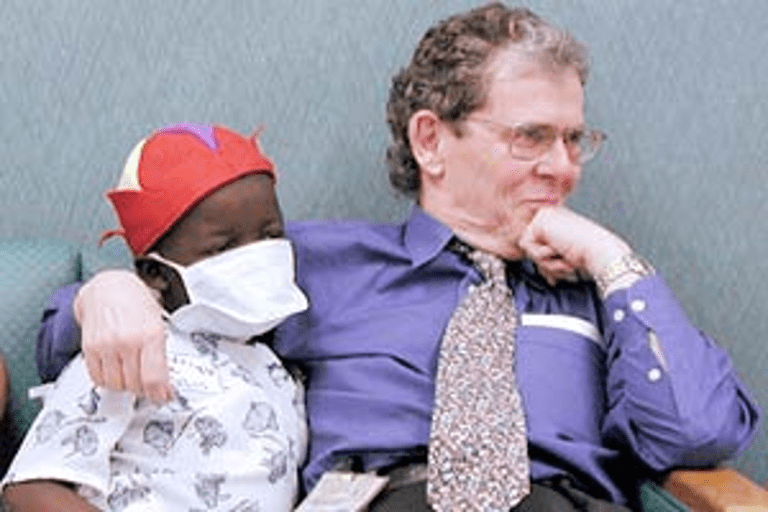

L to R Clockwise: John Graham-Pole aged 2 on Mummy’s knee with sisters Elizabeth, Mary, and Jane, High Bickington, Devon,
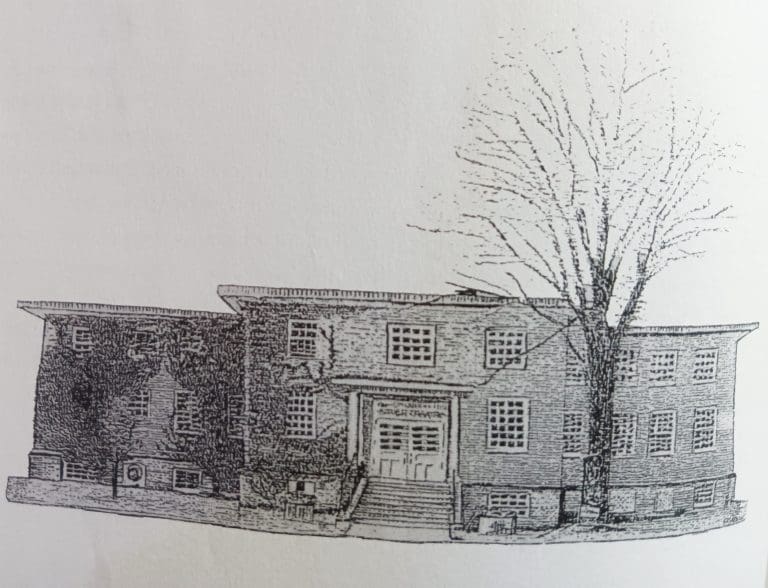

Posted by Dorothy Lander Once a month, John Graham-Pole and I showcase the publications of HARP The People’s Press at
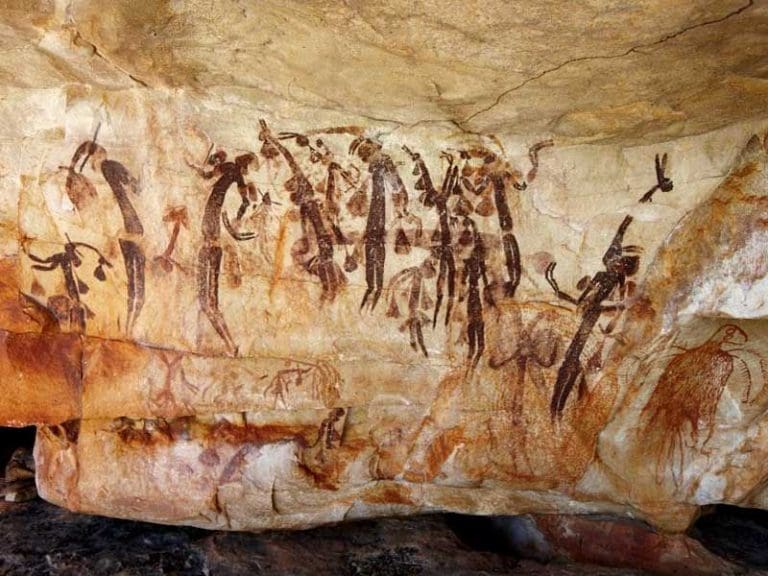

Aboriginal Rock Mural Kimberley Region, Western Australia Posted by John Graham-Pole I don’t have answers to any of these questions,
| Cookie | Duration | Description |
|---|---|---|
| cookielawinfo-checkbox-analytics | 11 months | This cookie is set by GDPR Cookie Consent plugin. The cookie is used to store the user consent for the cookies in the category "Analytics". |
| cookielawinfo-checkbox-functional | 11 months | The cookie is set by GDPR cookie consent to record the user consent for the cookies in the category "Functional". |
| cookielawinfo-checkbox-necessary | 11 months | This cookie is set by GDPR Cookie Consent plugin. The cookies is used to store the user consent for the cookies in the category "Necessary". |
| cookielawinfo-checkbox-others | 11 months | This cookie is set by GDPR Cookie Consent plugin. The cookie is used to store the user consent for the cookies in the category "Other. |
| cookielawinfo-checkbox-performance | 11 months | This cookie is set by GDPR Cookie Consent plugin. The cookie is used to store the user consent for the cookies in the category "Performance". |
| viewed_cookie_policy | 11 months | The cookie is set by the GDPR Cookie Consent plugin and is used to store whether or not user has consented to the use of cookies. It does not store any personal data. |